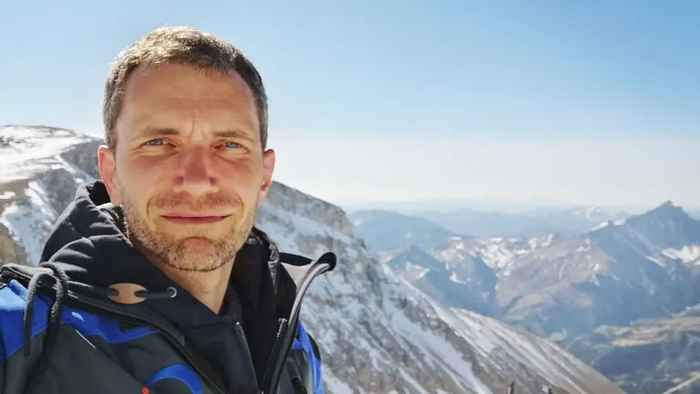Vossius Research Fellow Jonas Enander
5 September 2023

About the project
Karl Schwarzschild (1873–1916) was one of Germany’s most prominent astronomers. When the first world war broke out, he volunteered for the German army. He served as lieutenant while also continuing his scientific work to the extent that it was possible. In particular, he managed to find an exact solution to Einstein’s field equations of general relativity quickly after the equations were published in November 1915. His mathematical solution, which today is known as the Schwarzschild formula, forms the mathematical starting point for the study of black holes.
Although Karl Schwarzschild is such a prominent figure in the history of German astronomy, an article that gives a detailed description of his scientific and military activities during the war is lacking. Existing biographical articles only provide brief historical overviews of his wartime activities.
The goal of my stay at the Vossius center is to complete an article on Karl Schwarzschild’s activities during the first world war. The article will investigate specific questions relating to Karl Schwarzschild’s role as both a prominent astronomer and a lieutenant in the German army.
Answering these question will help to elucidate the link between science and military efforts that deepened throughout the 20th century. Examples of such questions are:
– Why did Karl Schwarzschild decide to volunteer to the military? How did his Jewish background play a role in this decision?
– How did Schwarzschild, as a prominent member of the scientific community, negotiate between the international nature of scientific work and the nationalistic demands of the war?
– How did Schwarzschild’s scientific experience aid him in his military activities?
The source material consists primarily of archive material from the Niedersächsiche Staats- und Universitätsbibliothek in Göttingen. This material contains personal letters between Schwarzschild, scientists and family members, as well as notes, publications and postcards. There is extensive information in the source material concerning Schwarzschild’s war activities that to my knowledge has never been published before.
The article necessitates a post-disciplinary approach. The questions I wish to address span both the history of science of physics and astronomy, as well as e.g. history of military technology and the history of how Jewish identities were developed in relation to nationalistic demands.
The article is part of a larger project about the history and epistemology of black hole research. This project will result in a book about black hole science. The book will be published in 2024 by Albert Bonniers, which is the largest publishing house in Sweden.
About the researcher
Jonas Enander is a Swedish science writer and communicator. He has a PhD in physics from Stockholm University (with a focus on cosmology and general relativity), and has done postdoctoral research in astrophysics at the Karlsruhe Institute of Technology in Germany. He has participated in the construction of the IceCube Observatory in Antarctica, taught physics at the Royal Institute of Technology in Stockholm and worked at the Communications Department of the European Southern Observatory in Germany. Today, Jonas regularly writes popular science articles for Swedish and American magazines, and also runs a Swedish podcast called Rumtiden.
In 2024, Jonas will publish a popular science book about black holes on Albert Bonnier’s publishing house. The book tells the story of what black holes are, what role they play in the Universe and what insights they give us into space, time and even our own lives on Earth.